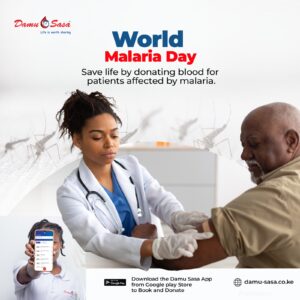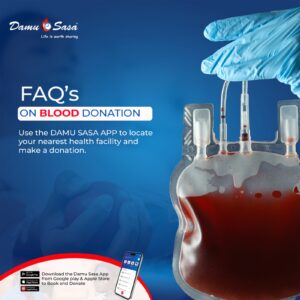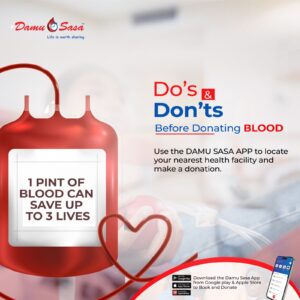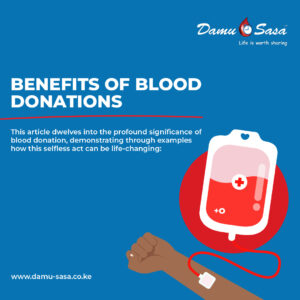By Damu Sasa
According to the English dictionary, a myth is a widely held but false idea or belief. Usually, myths come about through the special interests of a few, aimed at influencing certain actions by the masses. Myths can be positive but are mostly negative.
Myths are often emotive and capitalize on deeply rooted human fears. For example, growing up in rural Kenya, we used to be told not to go around a big tree, as we would either ‘die or our genders would ‘automatically change’.
As children, this was to prevent us from playing around a large tree, lest dried-up twigs fall on us. It was a positive myth, even though it robbed us of the pleasure of running around big trees.
Unfortunately, some myths are set towards unfounded and prevent humanity from positive action. A good example is one that goes like this: ‘If you donate blood you will die’. Another one suggests that donating blood may take away one’s birthright and pass it to the recipient of the donated blood.
Such myths greatly contribute to the weakening of Kenya’s blood donation culture. For example, in 2018, 77% of the people who donated were doing so for the first time, according to a BBC article by Peter Mwai, on 16 February 202o.
The weak blood donation culture is in part responsible for the blood donation shortfalls. According to the Kenya National Blood Transfusion Service (KNBTS), the country collects an average of 30% of 1 million units annual target. Worse still, there is no indication that the trend will change soon.
Mothers and children, who account for close to 60% of the transfusion needs according to a WHO Blood Safety report for Africa, bear the brunt of the deficit.
2 out of every 5 women are likely to die due to Post-Partum Haemorrhage (PPH) in part due to the lack of blood, according to the current Ministry of Health (MoH) stats.
While we cannot for ascertain the extent to which these negative myths contribute to blood shortage, we have a hunch that we would see an improved donation culture were the myths non-existent. An improved donation culture stands to save lives such as those of mothers afflicted with PPH.
Another myth holds that one can only donate blood for their relatives. Yet, one may not even be a match to the relative in question.
A donated and available unit of blood is one that potentially saves a life, regardless of who the donor is, and regardless of whether it is the life of a stranger or a relative. Indeed, your relative could be that beneficiary of blood donated by a stranger.
Therefore, let us not wait to save only our relatives. Let us simply donate to save lives.
As a country, we must continually assess the myths that many of us continue to hold. This is especially those to do with saving lives and, specifically, pertaining to blood donations. We must ask the extent to which they slow our journey towards our collective well-being.
Finally, according to health experts, donating blood not only saves lives but is also beneficial to the donor’s health.
Damu Sasa is an innovative end-to-end blood services information platform built to aid in the effective management of blood services.
![]()






